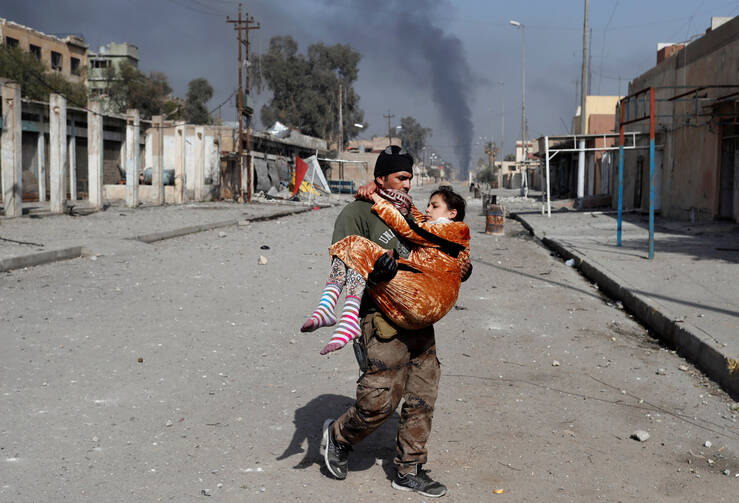ROME (CNS) -- Christians don't want to be a "protected minority" in the Middle East; they must be full citizens with full rights and the opportunity to contribute to a just and lasting peace, said Cardinal Pietro Parolin, Vatican secretary of state.
The return of Christians to Iraq's Ninevah Plain "must be the first and urgent objective of our efforts," the cardinal said. "That will allow the Christian community to then face the other challenges that awaits it in being fully active and generous in building up the common good of the entire nation."
Cardinal Parolin spoke on Sept. 28 at a Rome conference sponsored by Aid to the Church in Need, an international Catholic charity. The group's "Return to the Roots" campaign is trying to raise $250 million to rebuild 13,000 houses in northern Iraq and help their Christian owners return to their villages.
About 100,000 Christians -- among them more than 60,000 Syriac Catholics -- were expelled from the Ninevah Plain by the Islamic State group in the summer of 2014 as the militants campaigned to expand their reach into Iraq.
"A Christian presence is fundamental for a peaceful, stable" and multicultural Middle East, the cardinal said. For centuries, the region has been home to Christians, Muslims and Jews, but recent waves of terrorism and war are destroying its identity.
"A Christian presence is fundamental for a peaceful, stable and multicultural Middle East."
Aid to the Church in Need's project, he said, "beyond expressing the solidarity of the universal church -- shown not only at the level of spiritual closeness through prayer, but also on the concrete level of charity -- aims to restore to Christians that air of normality that is so necessary for overcoming fear and desperation and allowing them to look to the future with hope."
But the people also need guarantees of their security and their rights, Cardinal Parolin said. They have a right to return in safety, a right to religious freedom and, above all, a right to be recognized as full citizens and not just a "protected minority."
Chaldean Patriarch Louis Sako of Baghdad, who participated in the conference along with Syriac Catholic Archbishop Youhanna Boutros Moshe of Mosul and Syriac Orthodox Archbishop Nicodemus Daoud Sharaf of Mosul, told Vatican Radio, "Without reconciliation what does rebuilding houses do? They could be destroyed again."
"The most important thing is the culture, the mentality," the patriarch said. "People must exit this culture of violence -- always war, always violence, always revenge. We must educate people to live together in peace with respect, with collaboration and with understanding."









